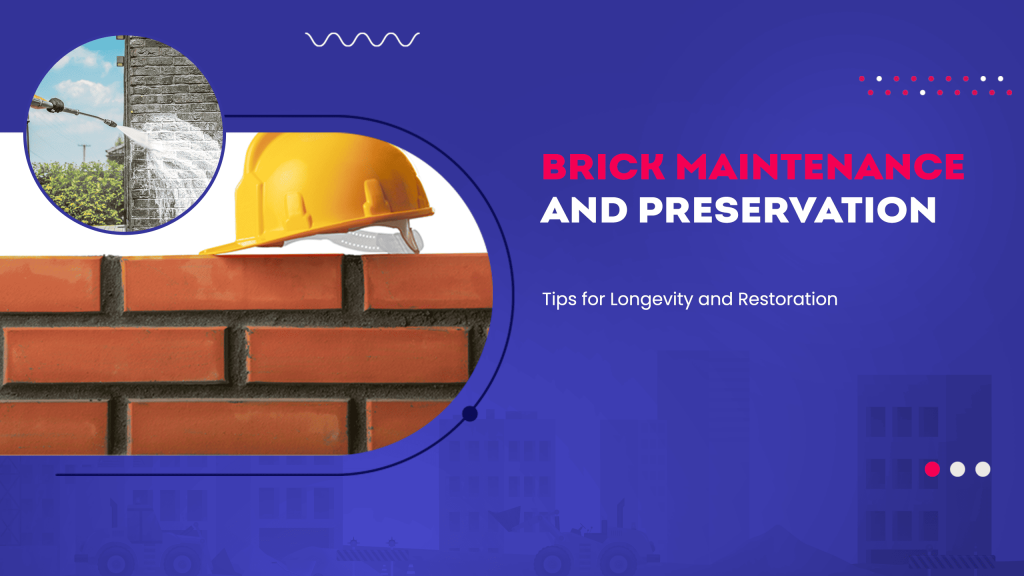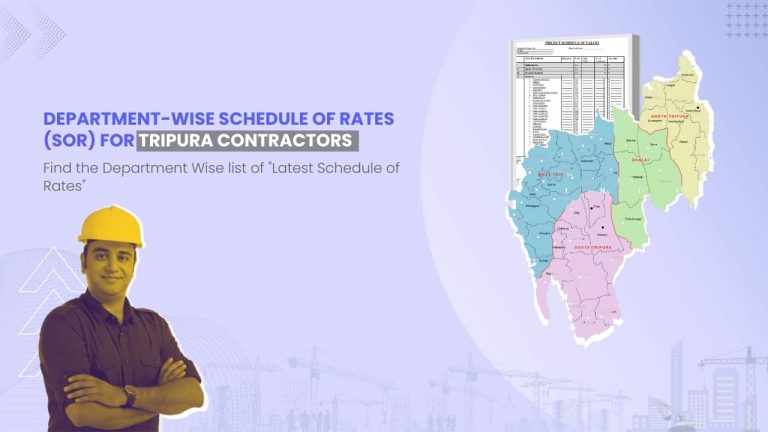
Brick maintenance and preservation are crucial for the longevity and durability of masonry structures. Brick is the central unit of masonry. There are different types of bricks used in construction based on their raw material. The strength and durability of construction directly depend on the power of the bricks. Maintaining and restoring the bricks to preserve their resilience and prevent physical damage will cut the cost of unnecessary investments. Thus, it will make the construction more cost-effective and durable. Therefore effective measures must be taken to preserve the strength and aesthetics of bricks.
Free Brick Calculator: Free Brick Calculator for Wall | Estimate Bricks Requirement
Factors Affecting The Longevity Of Bricks
- Breaking and chipping off: Any physical damage to the structure of the bricks will call for a repair or replacement of the brick. Improper handling or reduced strength will lead to premature chipping off or breaking of bricks.
- Water Damage: Increased water absorption or persistent moisture will cause a decrease in the strength of bricks. The moist bricks will change in color and become flaky and easily breakable.
- Algae and moss build-up: Moist and humid conditions during bricks storage will lead to tenacious algae and moss build-ups. They considerably reduce the strength and durability of the bricks.
- Weather Damage: Extreme weather conditions like rain, winds, and humidity may adversely affect the resilient strength of the bricks.
- Clay quality and manufacturing process: The quality of clay used in manufacturing bricks and the efficiency of manufacturing processes directly impacts the longevity of bricks.
- Contact with harsh chemicals: Any contact with harsh chemicals will cause a considerable decrease in the strength of the bricks.
Maintenance And Preservation Of Bricks
Here are some key points to ensure the preservation of brick’s quality and enhance its longevity.
1- Maintaining the Outer Surface
During the process of manufacturing, bricks undergo heating in a fire kiln. This process imparts a red colour to the bricks and improves their tensile strength. However, the outer surface of the brick has high resilience and density as compared to the inner core. Thus the hard outer surface acts as a shield and prevents the leaching of harmful chemicals and water absorption. Therefore it is advisable to maintain the outer surface and prevent it from any damage.
2- Quality Checks On A Regular Basis
Performing timely quality checks to ensure the best desirable condition of the bricks is recommended. Preferably checking for hardness, thermal resistance, any structural deformities and water absorption will let you know the quality of the bricks and the necessary steps to preserve them. Checking for any algal growths and removing them before they hamper the quality of bricks is a must.
3- Brick Replacement & Repairing
It is necessary to check the bricks for structural damage to maintain their durability. Repairing and replacing the damaged bricks to restore their properties helps in maintaining structural integrity.
4- Applying Sealants & Brick Coatings
Siloxane/ Silane sealers are applied on the surface of bricks and other masonry products to further enhance their durability. These sealers chemically react with the surface and form a barrier. This barrier protects the brick from extreme weather conditions and harmful chemicals. It also reduces the absorption of water.
5- Be Mindful While Applying Brick Stains
Certain stains are applied on the brick’s surface to enhance their aesthetics for using them for exterior decorative purposes. While choosing the stain, the constructor must be mindful that the stain should not reduce the permeability of the surface. The stained outer surface must let the water molecules vaporize. The inability to exude water from the surface will make the brick porous and fragile. This, in turn, will reduce the strength of the masonry.
Tips To Enhance Brick’s Longevity
- Proper storage: Always ensure the proper storage of bricks to maintain their longevity. The storage should be dry and arid. It should be properly sheltered and not let rainwater in.
- Maintain clean surroundings: The surrounding areas of brick storage should be kept clean to remove all the dirt, debris and unnecessary substances that may lead to damage.
- Clean the surface: Regularly clean the surface with brick cleaners.
- Ensure proper drainage system: The nearby waste water drainage should be leakproof. The brick storage should not be anywhere near the water supply or harmful chemicals.
Conclusion
Bricks are high-strength, durable substances used in masonry. Taking proper care and maintaining them will increase their longevity and add value to your property.

People also search for: brick experts, brick maintenance, how to check brick quality, maintenance of brick,







